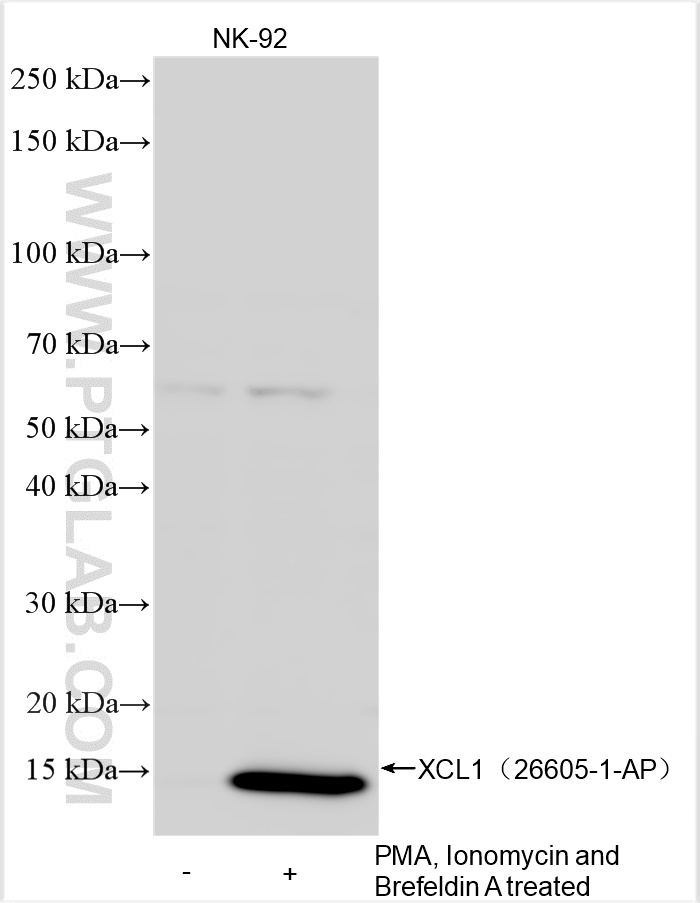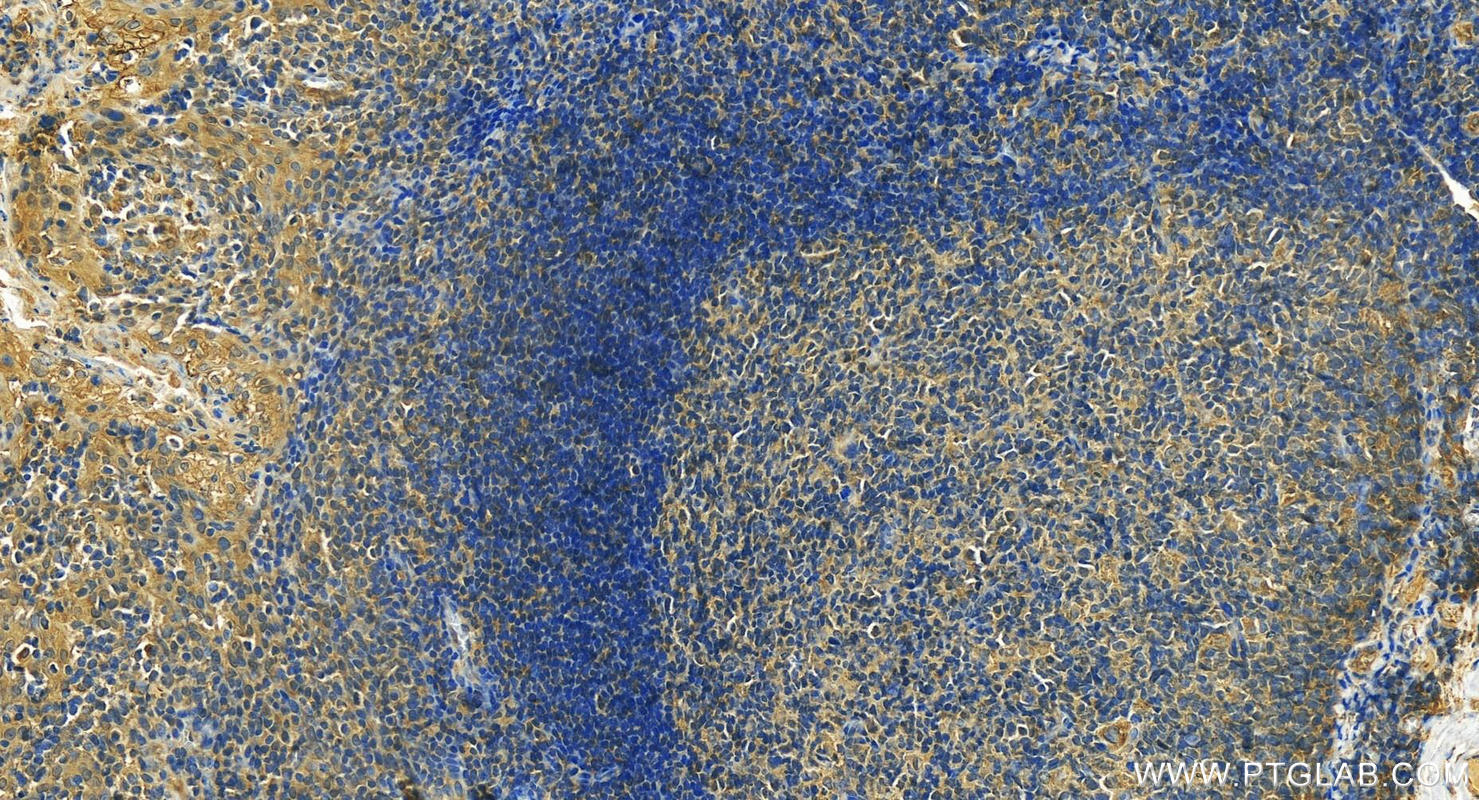XCL1 Polyclonal antibody
XCL1 Polyclonal Antibody for WB, IHC, ELISA
Host / Isotype
Rabbit / IgG
Reactivity
human
Applications
WB, IHC, ELISA
Conjugate
Unconjugated
验证数据展示
经过测试的应用
| Positive WB detected in | PMA, Ionomycin and Brefeldin A treated NK-92 cells |
| Positive IHC detected in | human tonsillitis tissue Note: suggested antigen retrieval with TE buffer pH 9.0; (*) Alternatively, antigen retrieval may be performed with citrate buffer pH 6.0 |
推荐稀释比
| Application | Dilution |
|---|---|
| Western Blot (WB) | WB : 1:1000-1:5000 |
| Immunohistochemistry (IHC) | IHC : 1:50-1:500 |
| It is recommended that this reagent should be titrated in each testing system to obtain optimal results. | |
| Sample-dependent, Check data in validation data gallery. | |
产品信息
26605-1-AP targets XCL1 in WB, IHC, ELISA applications and shows reactivity with human samples.
| Tested Applications | WB, IHC, ELISA Application Description |
| Tested Reactivity | human |
| Immunogen | XCL1 fusion protein Ag24258 种属同源性预测 |
| Host / Isotype | Rabbit / IgG |
| Class | Polyclonal |
| Type | Antibody |
| Full Name | chemokine (C motif) ligand 1 |
| Synonyms | Lymphotactin, Small-inducible cytokine C1, SCM-1-alpha, Cytokine SCM-1, C motif chemokine 1 |
| Calculated Molecular Weight | 114 aa, 13 kDa |
| Observed Molecular Weight | 13 kDa |
| GenBank Accession Number | BC070309 |
| Gene Symbol | XCL1 |
| Gene ID (NCBI) | 6375 |
| RRID | AB_3669553 |
| Conjugate | Unconjugated |
| Form | Liquid |
| Purification Method | Antigen affinity purification |
| UNIPROT ID | P47992 |
| Storage Buffer | PBS with 0.02% sodium azide and 50% glycerol pH 7.3. |
| Storage Conditions | Store at -20°C. Stable for one year after shipment. Aliquoting is unnecessary for -20oC storage. |
背景介绍
XCL1 also known as Lymphotactin, is a member of the chemokine superfamily. Chemokines function in inflammatory and immunological responses, inducing leukocyte migration and activation.
实验方案
| Product Specific Protocols | |
|---|---|
| WB protocol for XCL1 antibody 26605-1-AP | Download protocol |
| IHC protocol for XCL1 antibody 26605-1-AP | Download protocol |
| Standard Protocols | |
|---|---|
| Click here to view our Standard Protocols |

